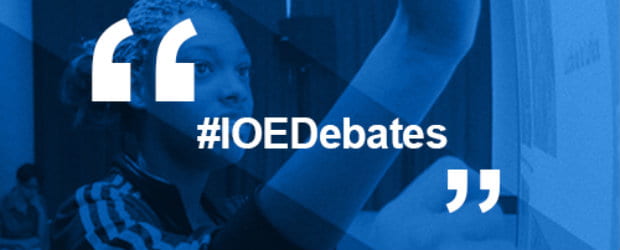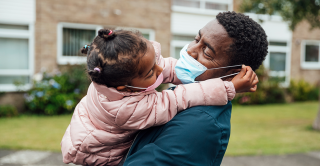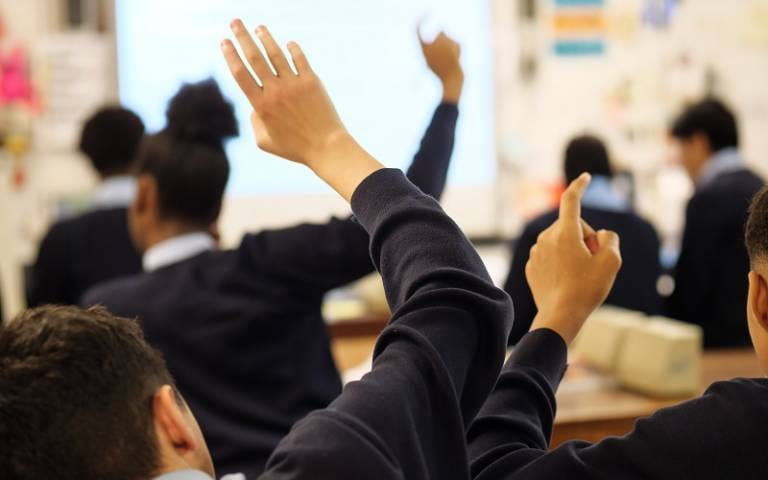Arts education: how can we bring it out from the wings and into the spotlight?
By Blog Editor, IOE Digital, on 18 June 2021
18 June 2021
By IOE Events
Our latest debate took a look at arts education: why it matters, how it’s been pushed to the margins, and how to bring it back centre stage. To review those question we were joined by an expert cast of education and public affairs professionals: art and textiles teacher (and 2018 Global Teacher Prize winner, and IOE alum) Andria Zafirakou, primary art specialist Emily Gopaul, IOE researcher Isobel Traunter, Public First director, Ed Dorrell, and our chair for the discussion, Dominic Wyse, Professor of Early Childhood and Primary Education at the IOE and researcher on creativity (read more about our panellists).
Arts education, encompassing art, dance, design, drama and music, is widely regarded as vital to a ‘well rounded education’. Alongside the development of particular cognitive skills and aptitudes, studying these subjects has been shown to benefit physical and mental health, the transferable skills that employers increasingly look for, as well as appreciation of difference and diversity. Yet, if we look at teacher numbers, teaching hours and exam entries we see just how (more…)
 Close
Close




 8 June 2021
8 June 2021




